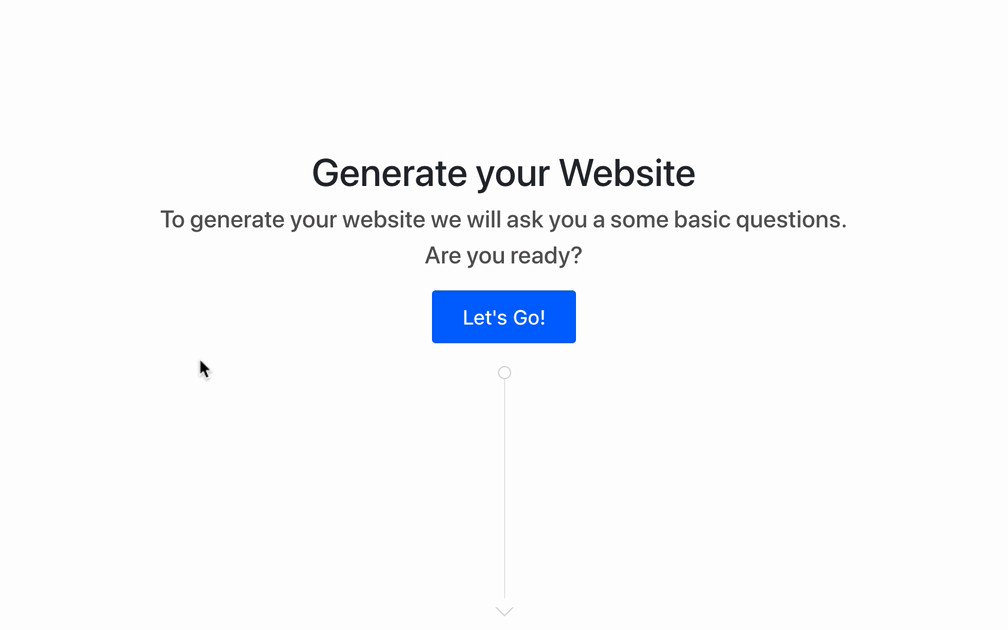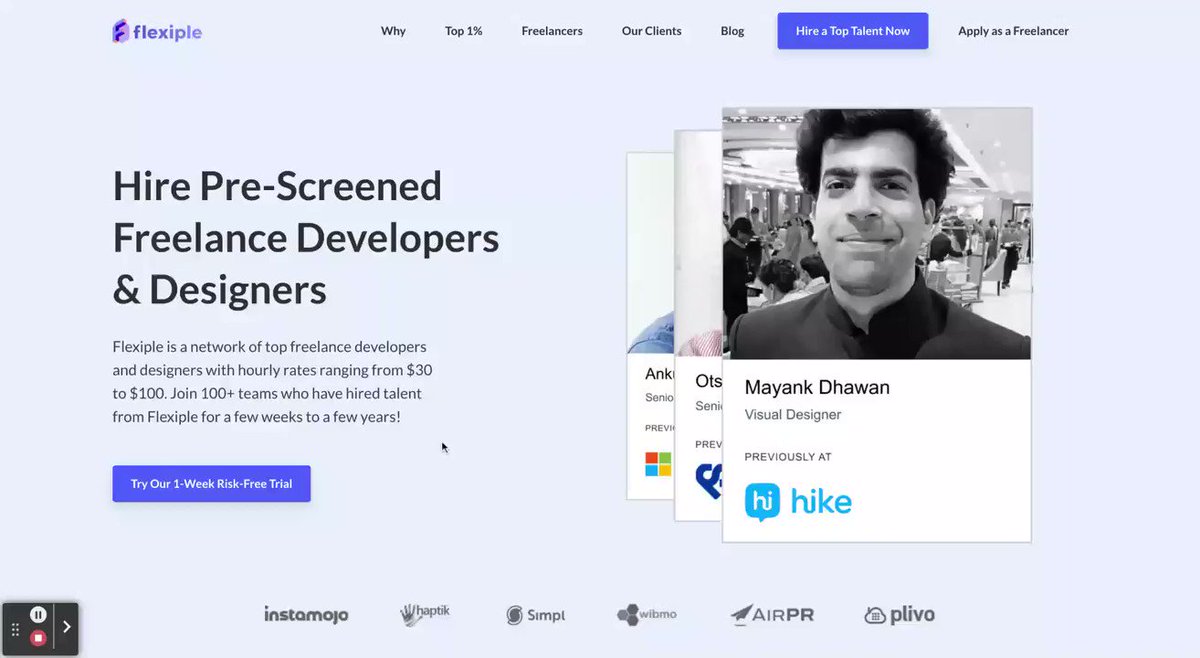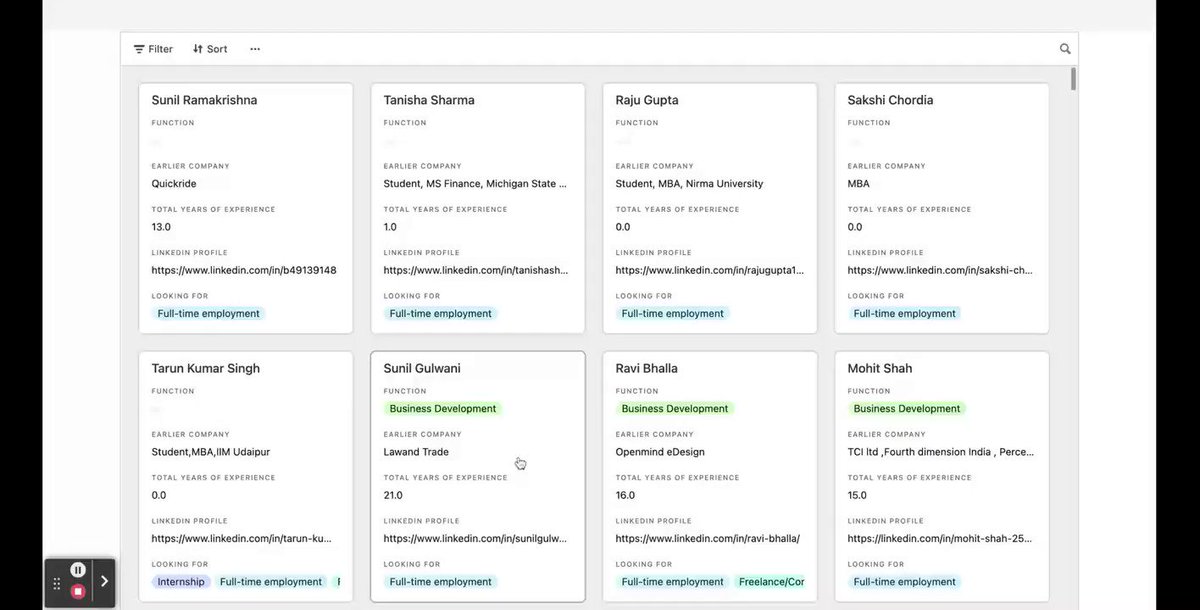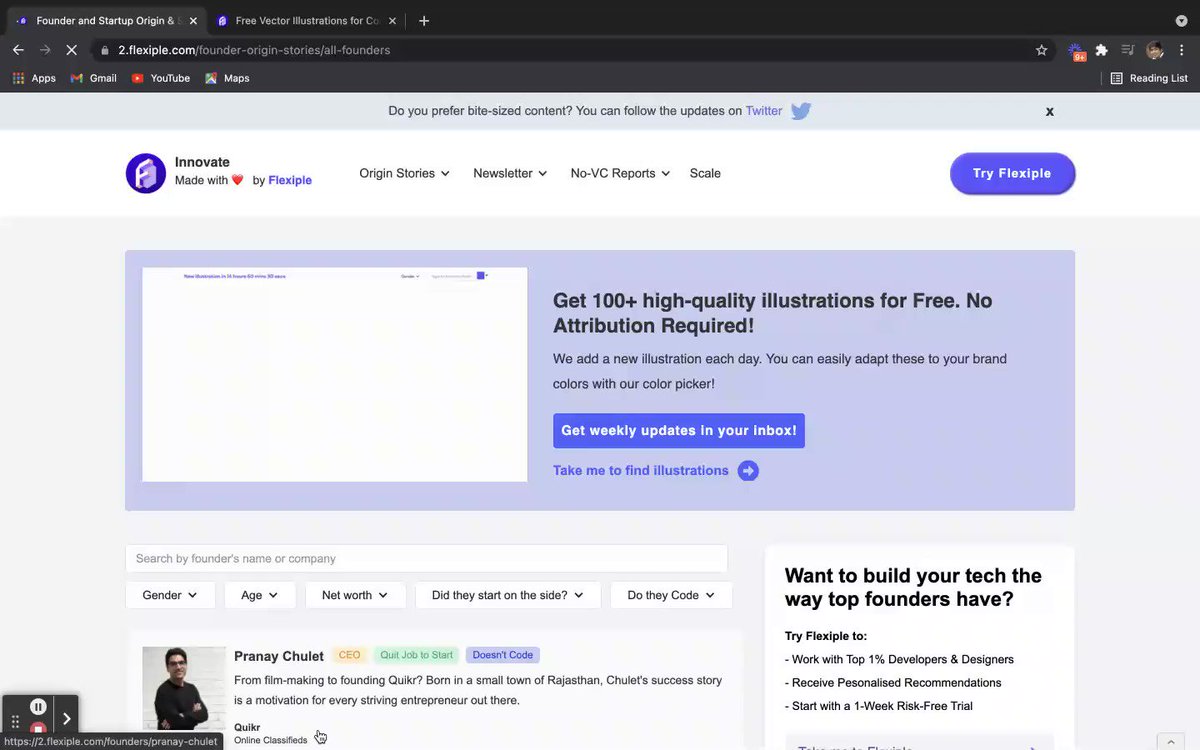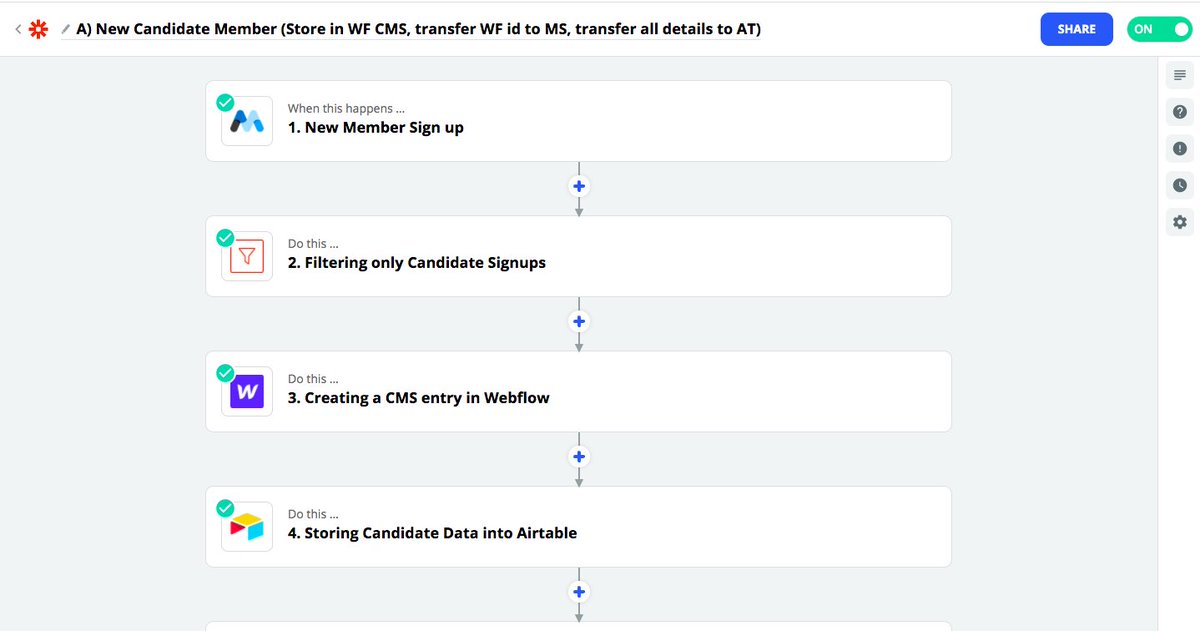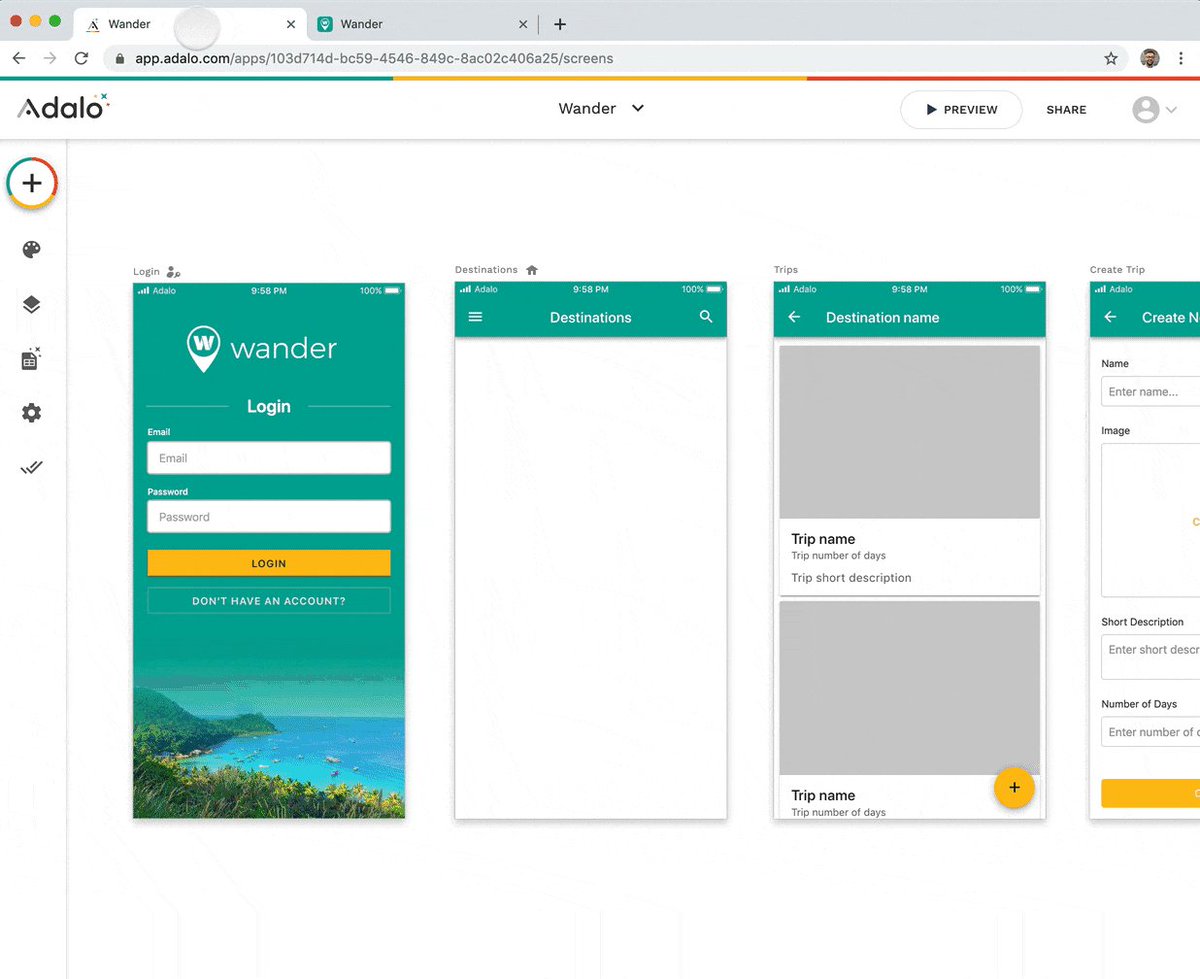1/ Marketing websites
A) Tools:
@unicornplatform, @umsohq B) Use cases
- You can simply drag & drop elements onto a page
- Build a marketing website in less than 60 mins
- Easily edit your marketing copy & communication to customers
1/ Marketing website (contd.)
C) Example
- We built our entire website of
https://t.co/mdQsG3XKpg containing over 50+ pages on Unicorn platform
D) Alternatives
-
@carrd -
@webflow (covered later)
2/ Database storage and information websites
A) Tool:
@airtable B) Use cases
- Advanced and more UI-friendly excel
- Easily collect data using an intuitive form
- Neatly present the data on your website in intuitive layouts
2/ DB & Information websites (contd.)
C) Example
- To help individuals laid off due to COVID, we built a page listing those who could be hired:
https://t.co/QRmyRdLvWk D) Alternatives
- Tools like Sheet2site, Table2site work well with Airtable to make quick websites
3/ Beautiful info & e-commerce websites
A) Tool:
@webflow B) Use cases
- Build beautiful custom layouts without Code
- Leverage its "CMS" to make numerous automated pages
- Use particularly if you are a designer and want to implement custom design to pixel perfection
3/ Beautiful info websites (contd.)
C) Examples
- We built both Scale (
https://t.co/WYOMSbhe0S) and Founder origin stories (
https://t.co/Bccnk2ttJc) on Webflow
D) Alternatives
- Bubble (
https://t.co/EBjaMRd1FQ): However, if focus is pixel perfect design, Webflow is much better.
4/ Automate workflows
A) Tools:
@zapier, @integromat B) Use cases
- Automate recurring manual effort
- Store data in CRM, send automated mails, integrate tools, etc.
-
@zapier is more intuitive but costly,
@integromat has a steeper learning curve but handles complex cases
4/ Automate workflows (contd.)
C) Example
- Almost all our dynamic flows are handled by Zapier or Integromat. User signup -> storing their data in our db -> sending them a mail
D) Alternatives:
- Parabola (@parabolahq)
- Automate (@automate)
5/ Login & membership systems
A) Tools:
@MemberstackApp, @memberspace B) Use cases
- To convert your static website to have signups/logins and to also manage SAAS memberships
- Restrict content or pages to only paid users
5/ Login and membership systems (contd.)
C) Example
- We built a dashboard for new projects viewing, sharing invoices, etc. using the above set of tools:
https://t.co/GzLnfE0dSr D) Alternative
- Bubble offers an in-built authentication system but doesn't manage subscriptions
6/ Any complex web-based product
A) Tool:
@bubble B) Use cases
- Job-boards, marketplaces, internal tools => build varied applications using its "workflows" & database
- Quite self-sufficient and removes the need to depend on other tools
- Responsive design is a not the best
6/ Complex web-based product (contd.)
C) Example
- Our internal tool is entirely built on top of Bubble and saves ~160 human hours per month (has sensitive data, so can't share video)
D) Alternatives:
- Adalo, Glide: More suited for mobile apps (discussed next)
7/ Mobile apps
A) Tools:
@glideapps, @AdaloHQ B) Use cases
- Build complex mobile apps with a simple drag & drop functionality
- Automate user actions with in-built workflows
- Use their own DB or even GoogleSheets to store data
7/ Mobile apps (contd.)
C) Example
- Not used these products myself, but a really cool example is of the apps made to help organise & share COVID resources with people:
https://t.co/5mpFJSKvWv D) Alternatives
- No credible alternatives that I know of
That's it for this thread - start building great products!
Also, I regularly write on startups, so, if you would like more such threads, consider retweeting the first tweet & following me :)
https://t.co/S2qTErZQP8
